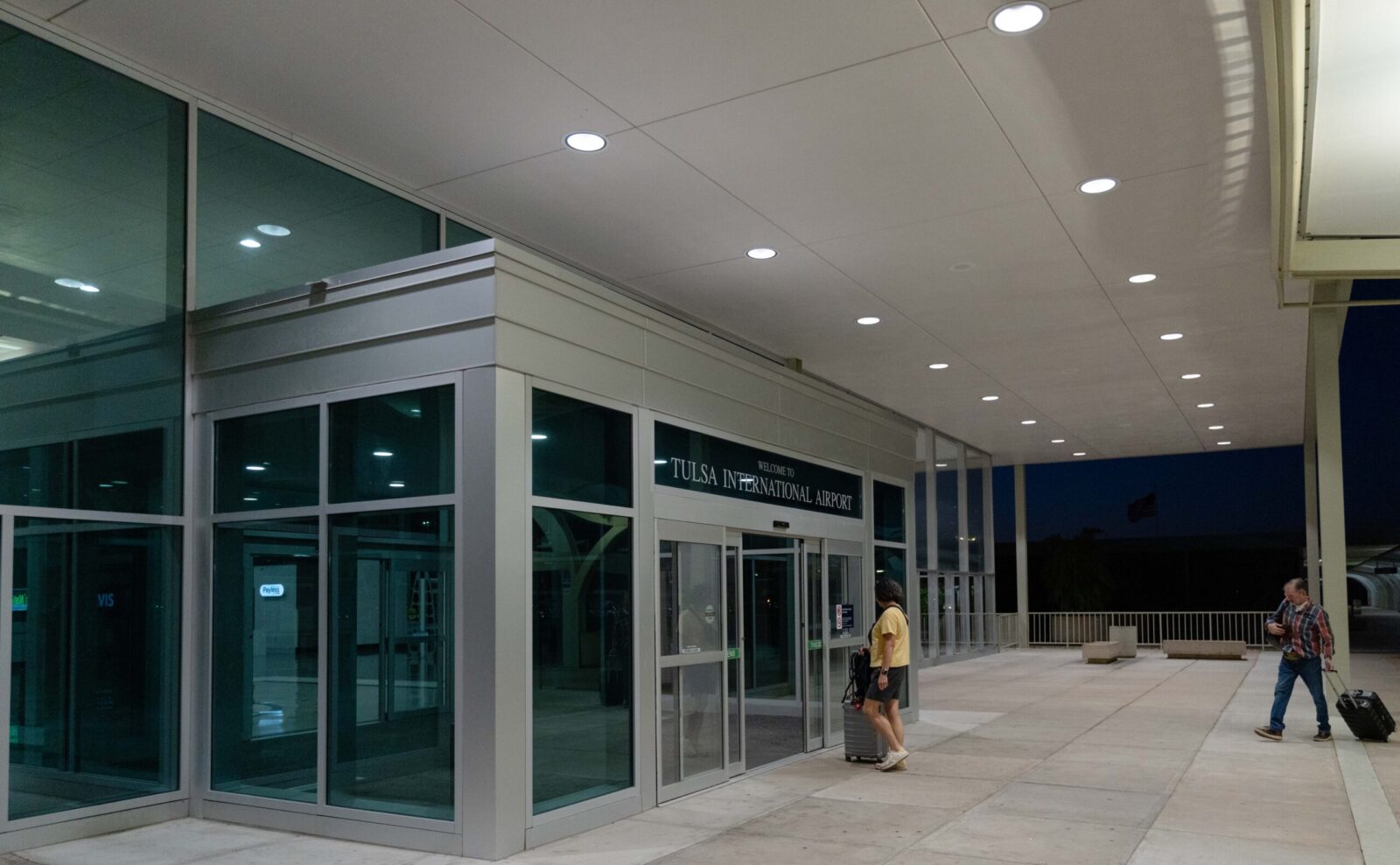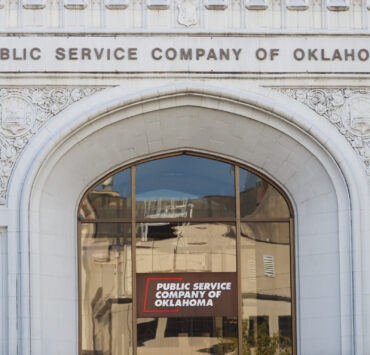
LOCAL
The Oklahoma Eagle and Tulsa Flyer staff
TSA workers are still required to show up without pay during the shutdown. Photo: Judd Slivka/Tulsa Flyer
The federal government shut down Wednesday over disagreements on a proposed funding bill. As politicians continue to debate on Capitol Hill, reporters for The Oklahoma Eagle and the Tulsa Flyer did some digging on what it means for Tulsans. Here’s what they found.
Air travel
Federal workers at Tulsa International Airport will temporarily work without pay since they are classified as essential workers by the U.S. Department of Homeland Security. Kim Kuehler, communications manager for TIA, told The Eagle there shouldn’t be any impact for local airport staff.
“However, we work closely with several federal partners in our facility, including TSA, FAA [Federal Aviation Administration] and Customs and Border Protection, whose personnel may be affected by a lapse in federal funding,” Kuehler said.
Kuehler advised travelers to routinely check their flight status even though they are not anticipating delays or cancellations. If the shutdown lasts for an extended period of time, there is a possibility delays will occur, she said.
The last government shutdown lasted for 35 days, from December 2018 through January 2019, during President Trump’s first term. Toward the end of the standstill, TSA employees began to call out sick at an increased rate, leading to delays and ground stops at several airports.
— Ismael Lele, business reporter, The Oklahoma Eagle
Food and health programs
No immediate changes are expected for people who receive benefits through the Supplemental Nutrition Assistance Program (SNAP) or Women, Infants and Children (WIC), according to Lori Just with the Tulsa Health Department.
The longer the shutdown continues, food banks may not be able to accept new orders and WIC administrators may have to prioritize certain recipients, like pregnant or breastfeeding moms, said Chris Bernard, CEO of Hunger Free Oklahoma. He encourages WIC clients to contact their administering agency if they have questions.
There are nine WIC locations around Tulsa County. You can find more details, like the hours of operation, on the Tulsa Health Department website. The phone number is 918-582-9355.
- Bixby WIC Clinic: 8120 E. 126th St., Bixby
- Broken Arrow WIC Clinic: 514 W. Atlanta St., Broken Arrow
- Central Regional Health Center: 315 S. Utica Ave., Tulsa
- James O. Goodwin Health Center: 5051 S. 129th E. Ave., Tulsa
- Mingo WIC Clinic: 9924 E. 21st St., Tulsa
- North Regional Health & Wellness Center: 5635 N. Martin Luther King Jr. Blvd., Tulsa
- Owasso WIC Clinic: 8361 N. Owasso Expressway, Suite C, Owasso
- Sand Springs Health Center: 306 E. Broadway St., Sand Springs
- South Peoria WIC Clinic: 6406 S. Peoria Ave., Tulsa
Social Security payments and Medicare benefits continue uninterrupted. The government also has enough money to fund Medicaid through early 2026. There could be administrative delays as furloughs take effect.
— Libby Hobbs, cost of living reporter, Tulsa Flyer

Tribal governments
Tulsa area tribal leaders say they are prepared for the shutdown and don’t expect many — if any — immediate interruptions to services. In the past, shutdowns raised concerns surrounding government funding of public safety positions, like tribal police, and assistance for health care and federal level food distribution programs.
Cherokee Nation Principal Chief Chuck Hoskin Jr. said the nation “maintains sufficient financial stability” to work through any possible effects.
“I urge both sides of the aisle to work on a path forward and reopen the government as soon as possible and call on the administration to honor the government’s Treaty and Trust responsibilities, avoid needless cuts to Tribal programs and personnel, and use its authority to minimize harm to tribes and tribal citizens,” Hoskin said in a statement Wednesday.
Jason Salsman, Muscogee (Creek) Nation press secretary, said a shutdown can lead to a “tendency to worry” but much of the impact has been minimal in the past. He said Tulsans and people living on reservation land should have confidence in the tribal government to “sail these waters.”
“We have our finger on the pulse right now,” Salsman said. “There is fear that there may be some gaps or services stopping, and for us it was just getting to work and getting to the weeds and talking to our programs that have ties to the federal government to make sure there was no interruption of services here [in Tulsa].”
— Phillip Jackson, government reporter, Tulsa Flyer
Education
The U.S. Department of Education is furloughing nearly 87% of its staff, but new Free Applications for Federal Student Aid (FAFSA) will still be processed. Students will continue receiving federal aid, and borrowers still have to make their loan payments.
All preexisting grant funds will still flow as usual to states and schools, but no new grants will be issued during the shutdown. Head Start, the early education program for low-income students, is not expected to see major impacts immediately. If the shutdown continues through November, more programs could be affected and likely forced to close, according to the New York Times.
The Office of Civil Rights will pause all investigations into federal civil rights complaints in schools. As of January, there were 24 investigations into Tulsa County school districts.
— Anna Colletto, education reporter, Tulsa Flyer









